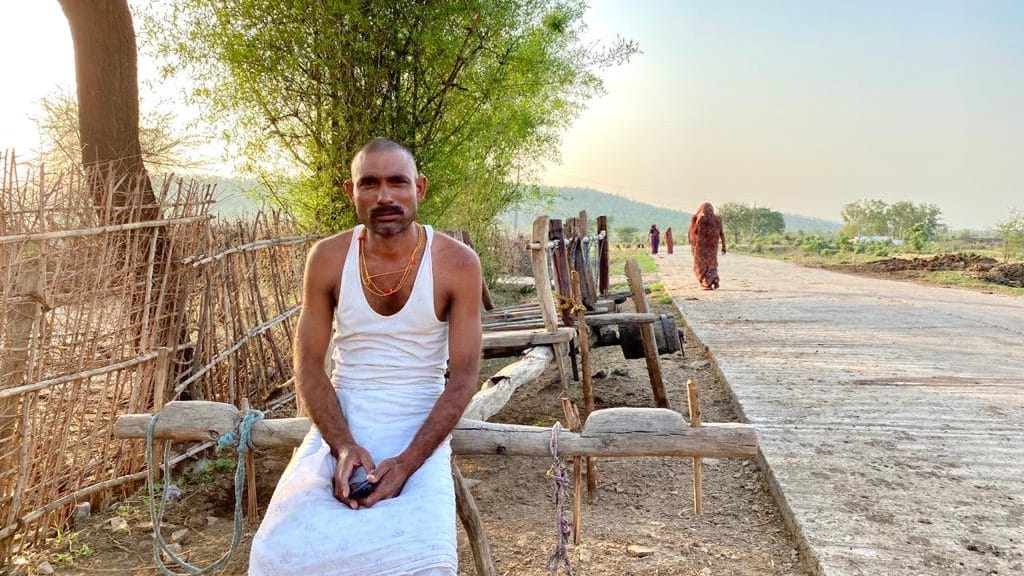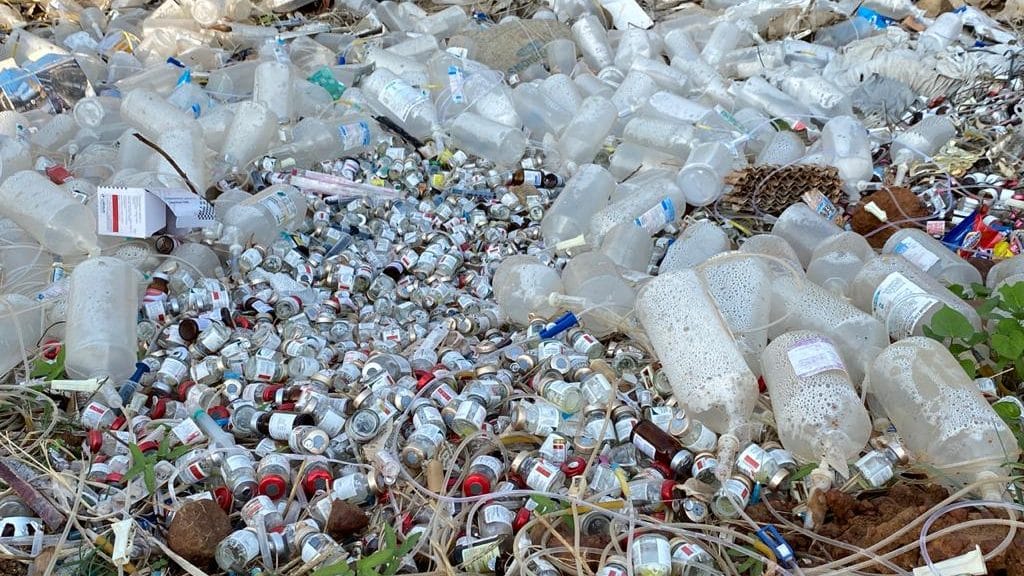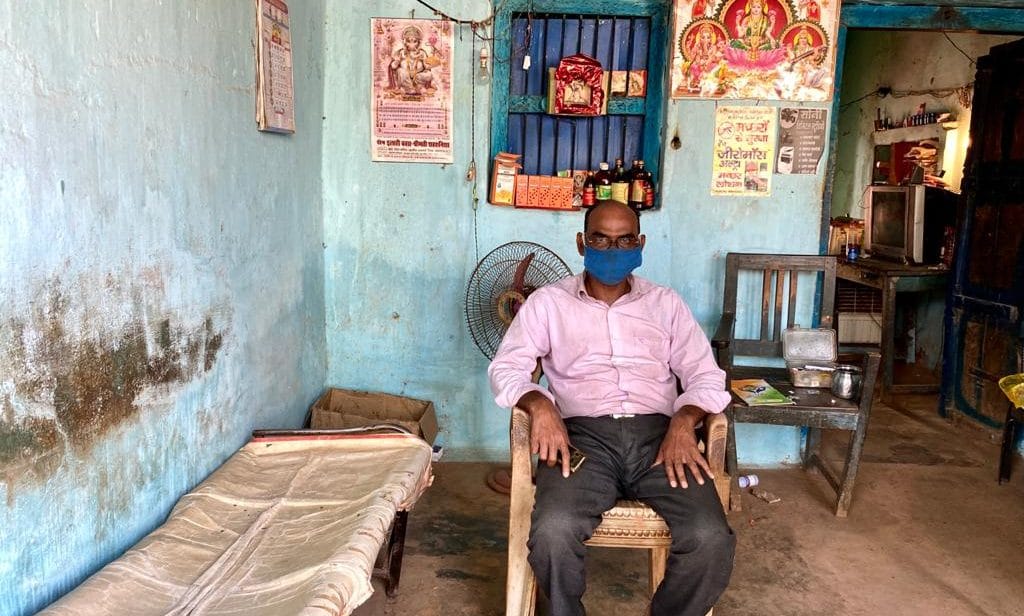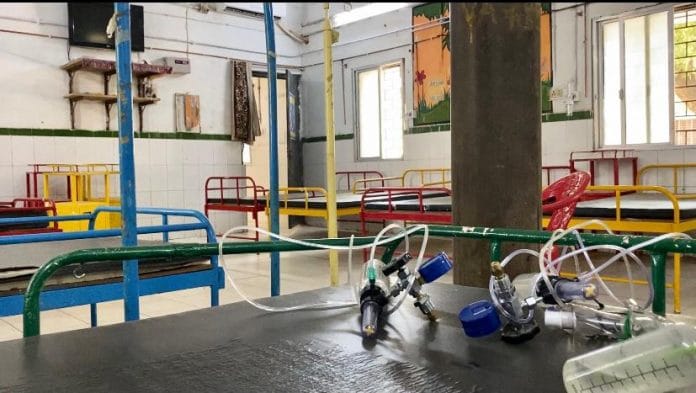Satna: Several villages that lie in Madhya Pradesh’s Satna district were last week declared red and orange zones — on account of rising Covid-19 cases.
Red zones are hotspots that have a high caseload and a doubling rate of confirmed cases while orange zones are those that have had cases but no surge in positive cases.
In Satna, medical facilities aren’t the problem. Many of these zones have government hospitals with oxygen beds, medicines and other medical resources to treat Covid-19 patients.
What they don’t have, however, are patients.
“Only those patients who have awareness come here. Considering the number of cases in the district, the number of patients we get aren’t as many,” said a doctor at the Majhgawan government hospital.
Owing to the beds lying vacant in the hospitals here, the administration has been sending teams of doctors to the villages in the district to test patients, spread awareness, and distribute Covid-19 kits.
Except it isn’t working.
“No one wants to listen. People get nervous; they think we are there to vaccinate them,” the doctor at the Majhgawan government hospital said. “In some villages, they even threatened to beat us.”
Distrust in the medical system, a fear of Covid tests and the presence of quacks has meant that many of the government hospitals in nearly all villages around Majghawan and the neighboring blocks do not have any patients.
Also read: ‘Kya hi hota…mar jaate hum?’ MP’s Panna tribals don’t care to get tested or vaccinated
‘Don’t trust doctors’
Villagers admit that they do not trust qualified doctors in government hospitals, and accuse these hospitals of showing “gross negligence”.
“No one listens to poor people in hospitals. You will wait for hours on end before a doctor will actually come see you,” said Santosh Yadav, a labourer at Patni village in Satna. “At best they will put you on a drip, otherwise you just keep waiting.”

Another reason behind villagers’ aversion to the hospitals is an overwhelming fear of tests.
“Hospitals get you tested. Then they wait for 3-4 days before getting you started on treatment, if at all they pay heed to your problems,” said Vishnu Rao, a shopkeeper in Devlaha village.
While the villagers stay away from hospitals, they do admit to relying entirely on quacks, or jhola chaaps as they are called in these parts. This dependence, they add, has only deepened during Covid, even if the treatment has had adverse effects.
Kanta Prasad Yadav, another resident of Devlaha village, told ThePrint that when his father began showing Covid symptoms on 28 April, he took him to a jhola chaap near their home and got him treated.
The father’s fever eventually subsided in the next two weeks but then Kanta realised that his father began having other issues, such as memory loss.
“I don’t know if it was because of the medicines prescribed by the jhola chaap or something else. But after that, I took him to an MBBS doctor,” Kanta said.
His father’s condition eventually improved, but Kanta says he doesn’t regret taking him to a jhola chaap first.
“What else could I have done? Government hospital doctors are hardly available,” Kanta said. “At least, a jhola chaap is readily available and there’s at least some treatment.. Even if it may have side effects.”
He added that while the MBBS doctor he went to ended up charging him Rs 2,000, the jhola chaaps charge only Rs 50 per consultation. “There’s a huge difference in the money spent,” he said.
Santosh Yadav, the labourer from Patni village, said the villagers prefer the quacks as they are treated with respect.
“At least a jhola chaap will listen to us, give us some treatment that will provide us relief, and treat us with respect,” Santosh said.
Rao, the Devlaha shopkeeper, even believes that the quacks have prevented deaths in the region. “If it weren’t for jhola chaaps, you would be seeing 100-200 dead bodies lying here,” he said.
Doctor T.K. Tripathi, the Block Medical Officer of Majhgawan, dismissed the allegation that villagers don’t get proper attention in the government hospitals, saying the doctors treat everyone equally.
Tripathi also said he has warned the jhola chaaps against running their clinics several times.
“These jhola chaaps are not valid. We have told them multiple times that what they are doing is wrong, and they have no basis to treat people,” Tripathi said. “The problem is that they might give the right medicines for fever etc. But they will not know the right doses and if a case is slightly more complicated due to the patient’s history, they will not know the safe approach then as well.”
Also read: Shouldn’t have gone to Kumbh, ‘Covid-guilty’ mela returnees now say in MP’s Vidisha
The ‘doctors’ that shouldn’t be
Avadesh Kumar Garg has a ‘doctor’ before his name on the big board above his ‘clinic’ in Majhgawan. Without an MBBS degree, Garg has been practicing at the exact same spot for the last 22 years.
Garg says he doesn’t treat Covid but he treats practically any patient who walks in with a complaint of a fever or body ache, or cough — or all of the above. These are all classic Covid symptoms but Garg says he can distinguish an “ordinary ailment” from a Covid one — without having to get a test done.
“I ask for their details, their history; if it seems like it’s a case of Covid, I refer them to the hospitals,” Garg said. “I only treat ordinary fever and cold and other basic issues.”
He says most of his treatment includes painkillers, antibiotics, anti-allergens and a drip of glucose or saline solution.
Like Garg, there are others too running these clinics without any qualification.
Most of them start by immediately putting the patient on a bottle of Dextrose Normal Saline or DNS — as evidenced by the mountain of empty DNS bottles next to these clinics.

Some others, like Babu Lal Verma treat their patients not just with allopathy, but also ayurveda.
“If it’s something like a cough or cold I treat them with ayurveda, otherwise I give them allopathic treatment,” Verma said. Several bottles of Patanjali grace his small clinic-cum-residence.

The jhola chaaps also say what they are doing qualifies as ‘jan seva (public service)’.
Srinarayan Yadav, who runs his ‘clinic’ by the side of a highway in Satna, said he is only helping the poor.
“We also have kids, we also have families. But we are risking our lives in these times, treating people and saving their lives,” he said. “This is important work, this is jan seva.”
(Edited by Arun Prashanth)
Also read: 7 leaders dead: Angry MP political families ask if postponing polls would’ve ‘shaken democracy’






